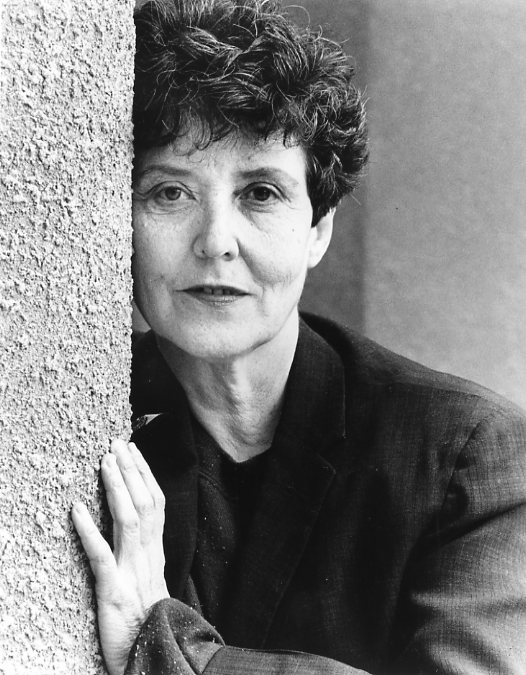Press Quotes
“She’s one of the very, very, best — it’s a shame she’s always been performed in such obscurity. Her work has no precedents, it isn’t derived from anything. She’s the most original of us all.” —Lanford Wilson about María Irene Fornés
THE CONDUCT OF LIFE
“… She writes increasingly from a woman’s point of view. Women are doing women’s things … Fornés has a near faultless ear for the ruses of egotism and cruelty. Unlike most contemporary dramatists, for whom psychological brutality is the principal, inexhaustible subject, Fornés is never in complicity with the brutality she depicts. She has an increasingly expressive relation to dread, to grief and to passion … Dread is not just a subjective state, but is attached to history: the psychology of torturers In THE CONDUCT OF LIFE … Fornés’s work has always been intelligent, often funny, never vulgar or cynical; both delicate and visceral. Now it is something more. The plays have always been about wisdom: what it means to be wise. They are getting wiser …” —From Susan Sontag’s preface to MARÍA IRENE FORNÉS PLAYS
“… a powerful piece of work. The scene here is the home of Orlando, an ambitious military officer in a Latin American country. A strapping fellow in crisp uniform and polished jackboots, he’s a fine figure of machismo, but there’s something radically wrong with the conduct of his life. He’s 33 and only a lieutenant, far behind in his career plans, and his domestic life, with an older wife he does not love and a physically handicapped maid who despises him, is in ruins. Above his living quarters, moreover, he is keeping in bondage a poor, terrified young woman whom he sexually abuses with brutal ferocity. Alternating quick, enigmatic scenes of violence and farce, Fornés digs into the obsessions of the lieutenant, who is, we soon learn, a professional torturer. His macho sneer conceals sexual panic; his dominating cruelty is an outgrowth of terrified insecurity. Beneath his voracious lust is a whimpering plea for love. Coolly concentrating on the specific personality of this hateful, deeply pained individual, Fornés does not make general statements on the ghastliness of political torture, but the loathsomeness of officially sanctioned inhumanity hangs like a pall over Orlando’s story, eating away at him and leading at last to his destruction.” —Richard Christiansen, The Chicago Tribune
MUD
“Playwright María Irene Fornés’s production of her play MUD — a stark drama set amid the groping lives of the rural poor that I saw last year — spoke in the steely voice of a writer who knew exactly what she intended with every word, every gesture. MUD’s spare, direct poetry was crystal-clear.” —Scott Rosenberg, San Francisco Examiner
THE DANUBE
“THE DANUBE [is] one of the most startlingly original and devastating things I can ever remember seeing on a stage.” — Michael Feingold, Village Voice
“THE DANUBE and MUD have paved the way for a new language of dramatic realism.” —Bonnie Marranca, Theaterwritings
“THE DANUBE is a play that mysteriously, yet naturally, makes the poetry of the living theater an experience of great power … it’s told, without intermission, in a series of short scenes of very simple, very beautiful language. Initially, it’s an amusing little love story, accompanied by schmaltzy accordion and gypsy violin, in which Paul, a young American, meets and falls in love with Eve, a young woman of Budapest. Their courtship, conducted in the monosyllabic sentences of an English-Hungarian conversation course, is charming, old-fashioned. Then, the romance becomes diseased. Eve suddenly faints at a restaurant; Paul has a seizure after their lovemaking; he is sent to a hospital; their skin breaks out in evil-looking sores; their cozy world of family and friends collapses … THE DANUBE makes graphically clear that the gradual death choking its characters is the result of a nuclear explosion and pollution. But, for Fornés, the shattering of this secure, simple life also could be the result of any terrifying element in a contemporary world filled with the forces of destruction. None of this is specifically stated, however. The cheerful mood of the love story is established through a sweet, smiling simplicity, expressed in the direct language of the conversation lesson that is played on a recording. The dread effects of the ensuing disaster are shown vividly in the dark glasses that the characters put on, in the stained soldier’s uniform that Paul wears, in the eternity that it takes an old man to lift a small cup of coffee to his lips, and in the stringy bit of slime that he picks from the cup.” —Richard Christiansen, The Chicago Tribune
SARITA
“Something beautiful: that’s clear from the beginning … Every image, every shadow, is lyrical, evocative, and functional. This is true of the words, the music, the characters …” —Erika Munk, The Village Voice
“Playwright María Irene Fornés … spoke in the steely voice of a writer who knew exactly what she intended with every word, every gesture. [Her] spare direct poetry was crystal-clear. SARITA — a musical about a young Cuban woman in 1940s New York torn between the gentle man she wants to love and the jerk she can’t stay away from … The play is two acts of ten short scenes each, spanning a total of eight years. They’re brief flashes of light that show us the formative moments of Sara Fernandez’s life — that connect to form a confining pattern that drives her toward madness and violence …” —Scott Rosenberg, San Francisco Examiner

